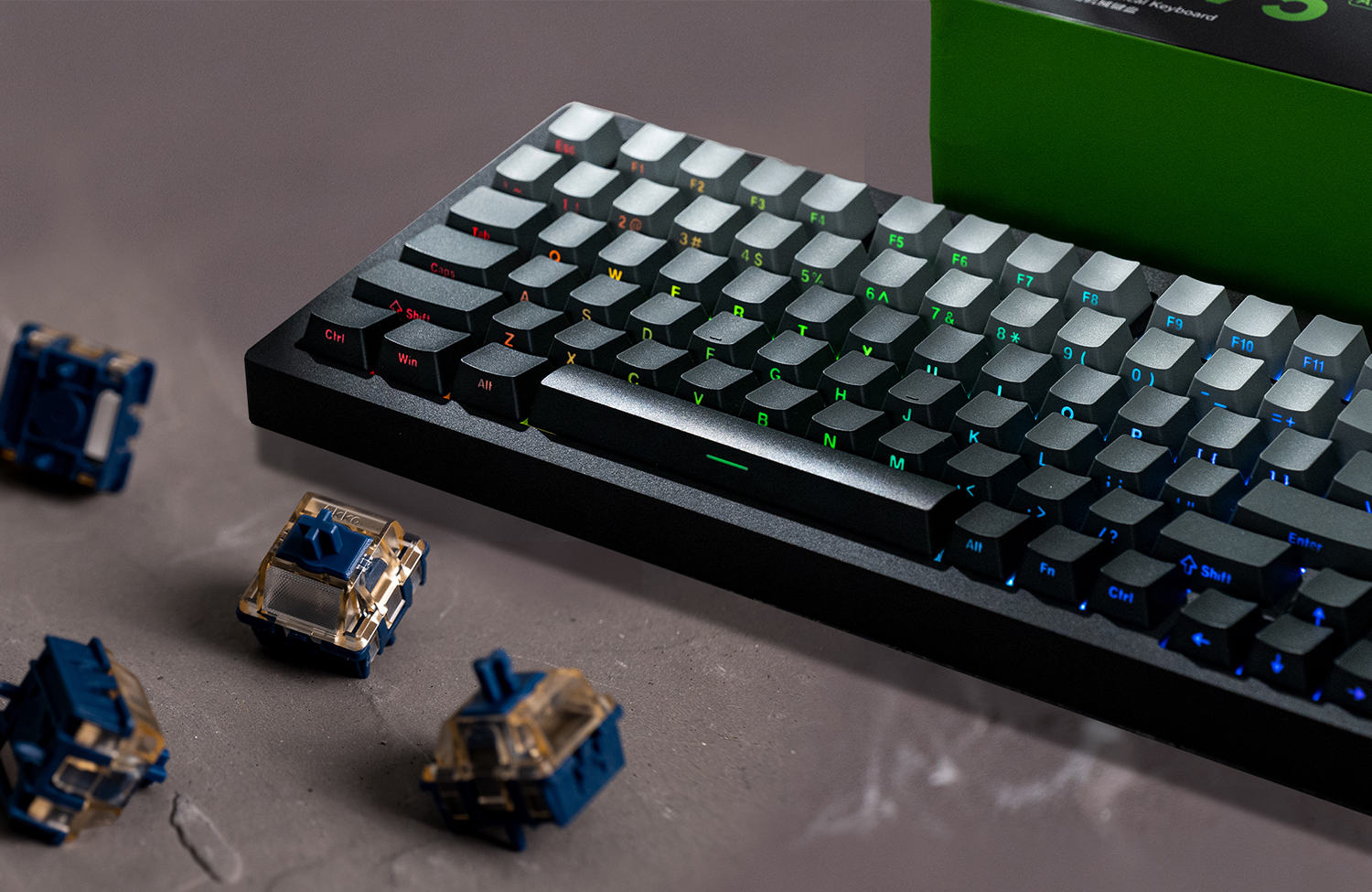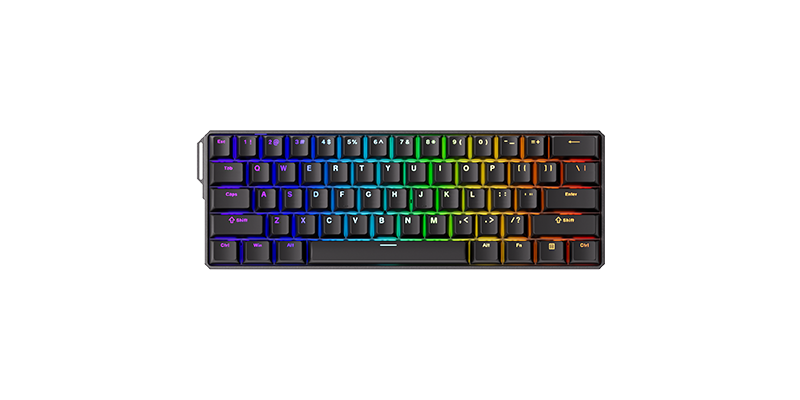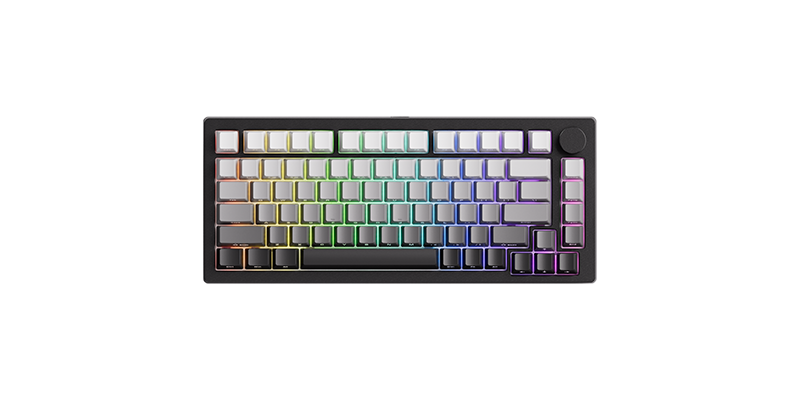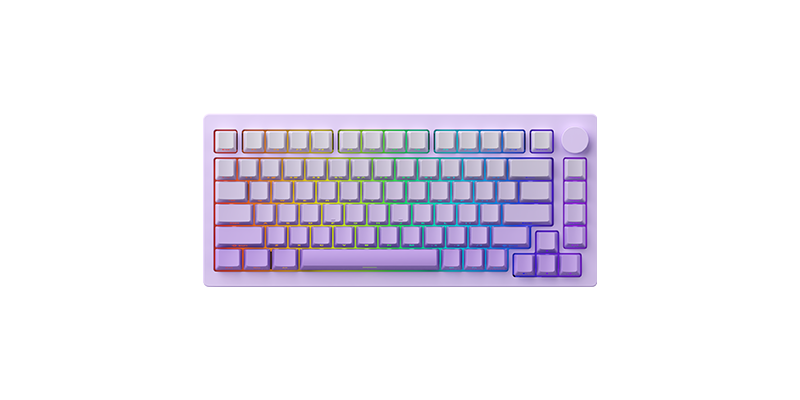Magnetic Switch Compatibility: How to Know If They Work With Your Keyboard
📅May. 2 2025
Planning to upgrade your magnetic switch keyboard with new switches? It’s crucial to understand magnetic switch compatibility before making a purchase.
Unlike traditional mechanical switches, magnetic switches operate based on magnet polarity and PCB design, meaning not all keyboards will support them.
In this guide, we’ll walk you through the key factors to check before purchasing magnetic switches, especially if you’re considering switches like the Astrolink magnetic switches.

1. Check Your Keyboard Type
First, determine if your keyboard supports magnetic switches.
- Mechanical Keyboards – These standard keyboards use physical contact to register keystrokes and do not work with magnetic switches.
- Magnetic Switch Keyboards – These keyboards, such as Hall Effect and TMR models, are designed to support magnetic switches. Examples include the MonsGeek FUN60, MonsGeek M1 V5 TMR, Akko MOD007B HE, and Wooting 60HE.
2. Understand Magnet Orientation
Search Tip: Magnetic switch polarity: N-pole vs S-pole
Magnetic switches use magnet polarity to detect key position. This is a crucial yet often overlooked factor.
- Compatible Tips
Some switches come with N-pole magnets facing downward, while others with S-pole magnets. They are not cross-compatible. - Incompatible Example
MonsGeek M1W HE and M1W V3 HE come with downward-facing S-pole magnetic switches, meaning they cannot work with Astrolink switches that use downward-facing N-pole magnets.
3. PCB Structure
The PCB structure determines whether magnetic switches will fit and function properly. Some magnetic switches use 2-pin legs while others not.
If you plan to purchase magnetic switches with 2-pin legs, make sure your keyboard’s PCB has 2-pin sockets for a proper fit — otherwise, you’ll need to trim the pins.
4. What Rapid Trigger precision can be achieved after replacing the switches?
The precision is generally due to differences in IC hardware and is related to the sampling rate.
For example, Astrolink Magnetic Switches offer 0.01mm Rapid Trigger (RT) sensitivity and are compatible with Wooting keyboards that originally use 0.1mm RT switches. After replacing the original switches with Astrolink ones, the Wooting keyboard will continue to operate at 0.1mm RT resolution, as determined by the keyboard’s hardware and firmware.
However, if your keyboard is an M1 V5 TMR equipped with 0.01mm Astrolink Magnetic Switches and you replace them with Jade Pro switches rated at 0.1mm, the Rapid Trigger resolution may be limited to 0.1mm.
Quick Checklist for Astrolink Magnetic Switch Compatibility
- ✔️ Is your keyboard magnetic switch compatible?
Note: Standard mechanical keyboards are not compatible.
- ✔️ Does your keyboard comes with downward-facing N-pole switches?
Astrolink uses downward-facing N-pole magnets.
- ✔️ Does the PCB have 2-pin holes?
If not, modding Astrolink switches need to be required.
- ✔️ Are 0.01mm precision switches compatible with magnetic switches keyboards with 0.1mm precision magnetic switches?
The answer is YES!
Before buying any magnetic switches, check these four factors: keyboard type, magnet orientation, PCB design, and firmware capabilities. Whether upgrading your current build or experimenting with high-precision Hall Effect switches, understanding compatibility is crucial. Don’t forget to check community forums and consult the manufacturer’s documentation for additional insights!
FAQ Addition:
Are Astrolink switches TMR or HE switches?
Astrolink switches use Hall Effect technology, but like TMR switches, they rely on sensors for actuation. Astrolink switches are fully compatible with the MonsGeek FUN60 Pro & Max HE, FUN60 Ultra, and M1 V5 TMR keyboards.



